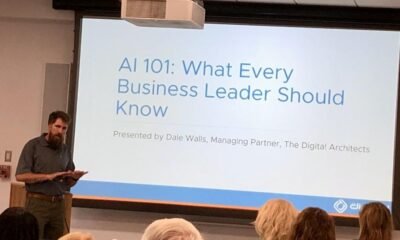We don’t really know how much energy artificial intelligence is consuming. There aren’t any laws currently on the books requiring AI companies to disclose their energy usage or environmental impact, and most firms therefore opt to keep that controversial information close to the vest. Plus, large language models are evolving all the time, increasing in both complexity and efficiency, complicating outside efforts to quantify the sector’s energy footprint. But while we don’t know exactly how much electricity data centers are eating up to power ever-increasing AI integration, we do know that it’s a whole lot.
“AI’s integration into almost everything from customer service calls to algorithmic “bosses” to warfare is fueling enormous demand,” the Washington Post recently reported. “Despite dramatic efficiency improvements, pouring those gains back into bigger, hungrier models powered by fossil fuels will create the energy monster we imagine.”
And that energy monster is weighing heavily on the minds of policymakers around the world. Global leaders are busily wringing their hands over the potentially disastrous impact AI could have on energy security, especially in countries like Ireland, Saudi Arabia, and Malaysia, where planned data center development outpaces planned energy capacity.
In a rush to keep ahead of a critical energy shortage, public and private entities involved on both the tech and energy sides of the issue have been rushing to increase energy production capacities by any means. Countries are in a rush to build new power plants as well as to keep existing energy projects online beyond their planned closure dates. Many of these projects are fossil fuel plants, causing outcry that indiscriminate integration of artificial intelligence is undermining the decarbonization goals of nations and tech firms the world over.
“From the deserts of the United Arab Emirates to the outskirts of Ireland’s capital, the energy demands of AI applications and training running through these centres are driving the surge of investment into fossil fuels,” reports the Financial Times. Globally, more than 85 gas-powered facilities are currently being built to meet AI’s energy demand according to figures from Global Energy Monitor.
In the United States, the demand surge is leading to the resurrection of old coal plants. Coal has been in terminal decline for years now in the U.S., and a large number of defunct plants are scattered around the country with valuable infrastructure that could lend itself to a speedy new power plant hookup. Thanks to the AI revolution, many of these plants are now set to come back online as natural gas-fired plants. While gas is cleaner than coal, the coal-to-gas route may come at the expense of clean energy projects that could have otherwise used the infrastructure and coveted grid hookups of defunct coal-fired power plants.
“Our grid isn’t short on opportunity — it’s short on time,” Carson Kearl, Enverus senior analyst for energy and AI, recently told Fortune. “These grid interconnections are up for grabs for new power projects when these coal plants roll off. The No. 1 priority for Big Tech has changed to [speed] to energy, and this is the fastest way to go in a lot of cases,” Kearl continued.
Last year, Google stated that the company’s carbon emissions had skyrocketed by a whopping 48 percent over the last five years thanks to its AI integration. “AI-powered services involve considerably more computer power – and so electricity – than standard online activity, prompting a series of warnings about the technology’s environmental impact,” the BBC reported last summer. Google had previously pledged to reach net zero greenhouse gas emissions by 2030, but the company now concedes that “as we further integrate AI into our products, reducing emissions may be challenging.”
By Haley Zaremba for Oilprice.com
More Top Reads From Oilprice.com







































